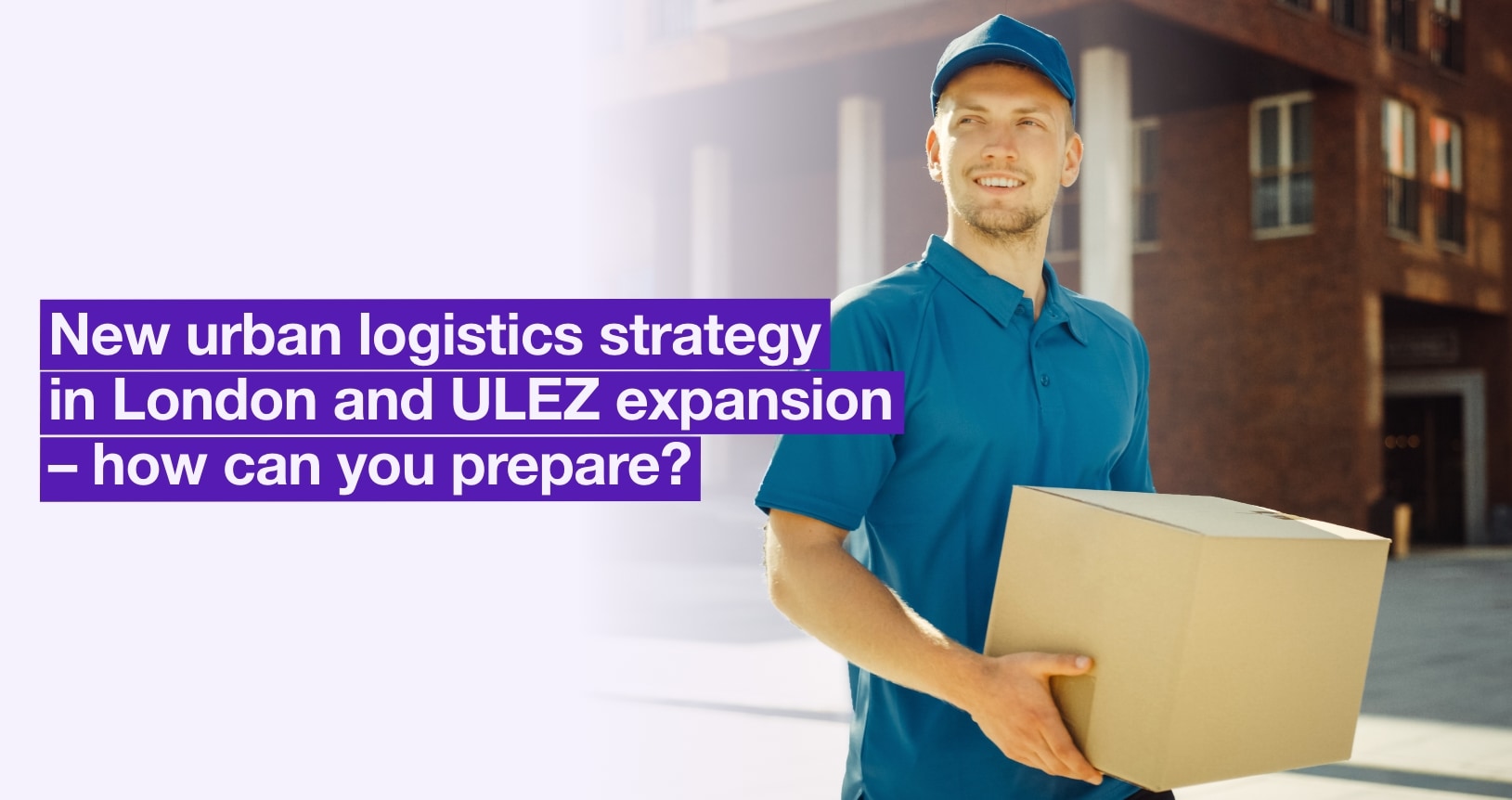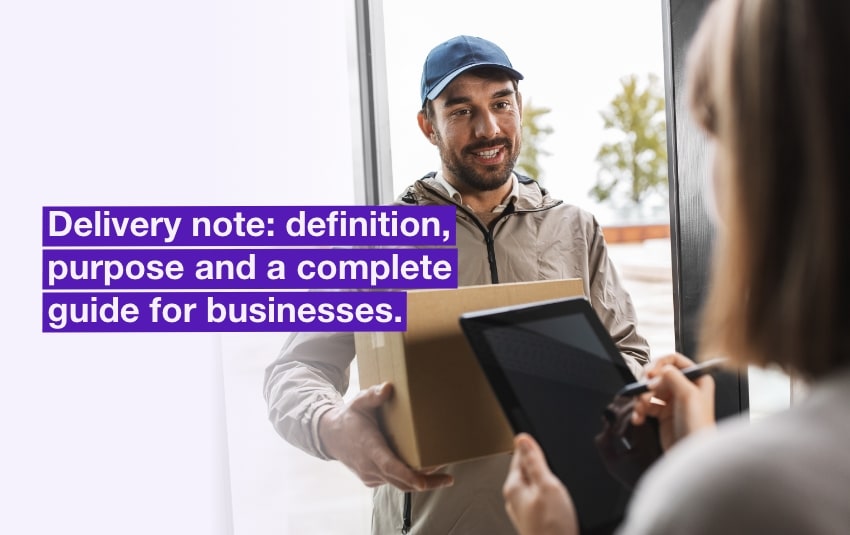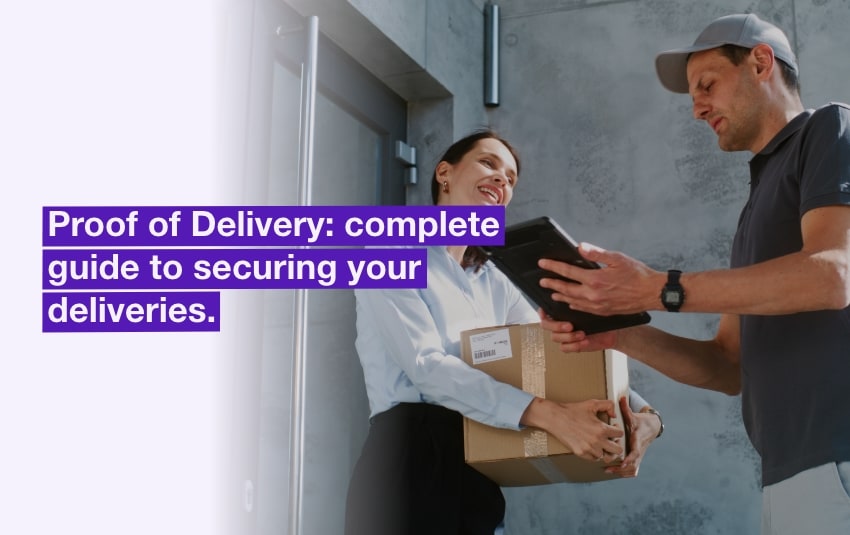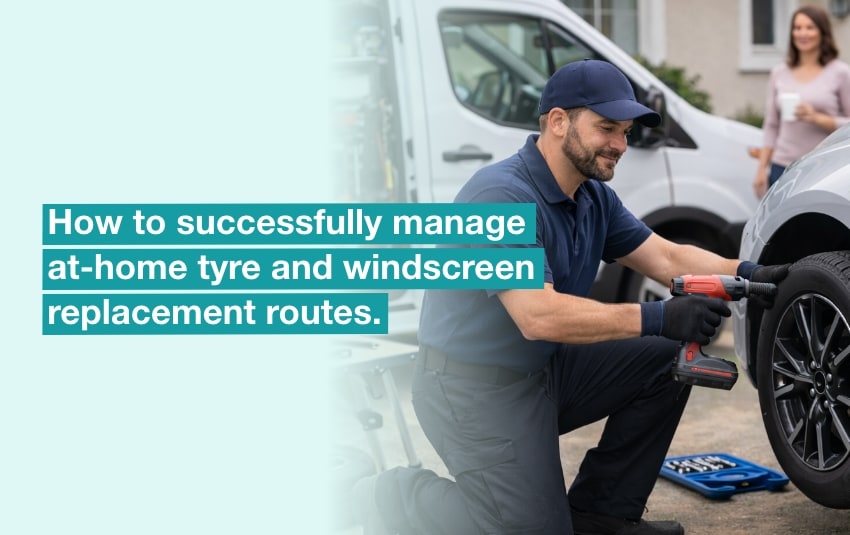New urban logistics strategy in London and ULEZ expansion – how can you prepare?
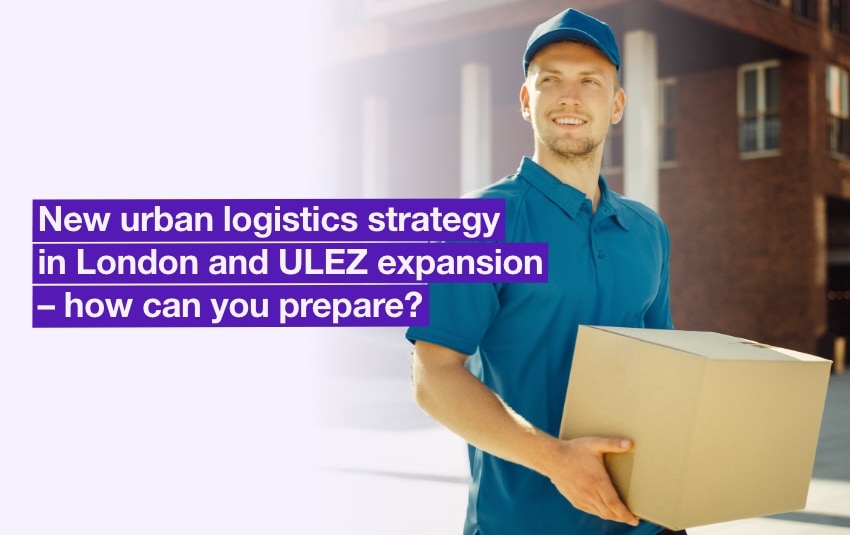
The complexity around transport and management of public spaces in London has been an ongoing issue for ages, and the health crisis has only made matters much more complicated. In the “Post-Pandemic” world, home delivery services are increasingly popular, all the while making congestion in the city worse.
In order to tackle the issues of air pollution and traffic congestion, the Mayor of London introduced the ULEZ (Ultra Low Emission Zones) in Greater London, in April 2019. This article will guide you in better understanding ULEZ and its impacts on your business.
Table of contents
- Your general guide to ULEZ
- Expansion of ULEZ in 2023
- Optimise transport routes with specialised software
- Adopt alternative modes of transport whenever possible
To meet the challenges of urban logistics in London, transport professionals are reinventing themselves. By anticipating reforms and adopting technical tools, they can remain competitive in the capital’s dynamic environment. This ensures better management of logistics flows and greater efficiency.
Your general guide to ULEZ:
Vehicles which don’t meet the ULEZ standards have to pay a daily charge to drive within that zone:
- £12.50 for most vehicle types, including cars, motorcycles, and vans (up to and including 3.5 tonnes).
- £100 for heavier vehicles including lorries and buses.
And that’s not the end of it! Companies and drivers also have to keep in mind several distinctions regarding those charges:
- Congestion Charge (CC): Operates 07:00-18:00 Mon-Fri, 12:00-18:00 Sat-Sun and bank holidays. No charge between Christmas Day and New Year’s Day bank holidays (inclusive).
- Ultra Low Emission Zone (ULEZ): Operates 24 hours a day, every day of the year, except Christmas Day (25 December).
- Low Emission Zone (LEZ): Operates 24 hours a day, every day of the year.
- Direct Vision Standard (DVS) and HGV Safety Permit: Operates at all times for lorries over 12 tonnes of gross vehicle weight.
It covers most of Greater London, and it is currently effective 24 hours a day, 7 days a week, every day of the week except for Christmas. The daily charges run from midnight to midnight, which means that if you enter at 11 pm and leave at 1 am, you will be charged twice. These hefty fees can quickly add up and put a further financial strain on your delivery operations.
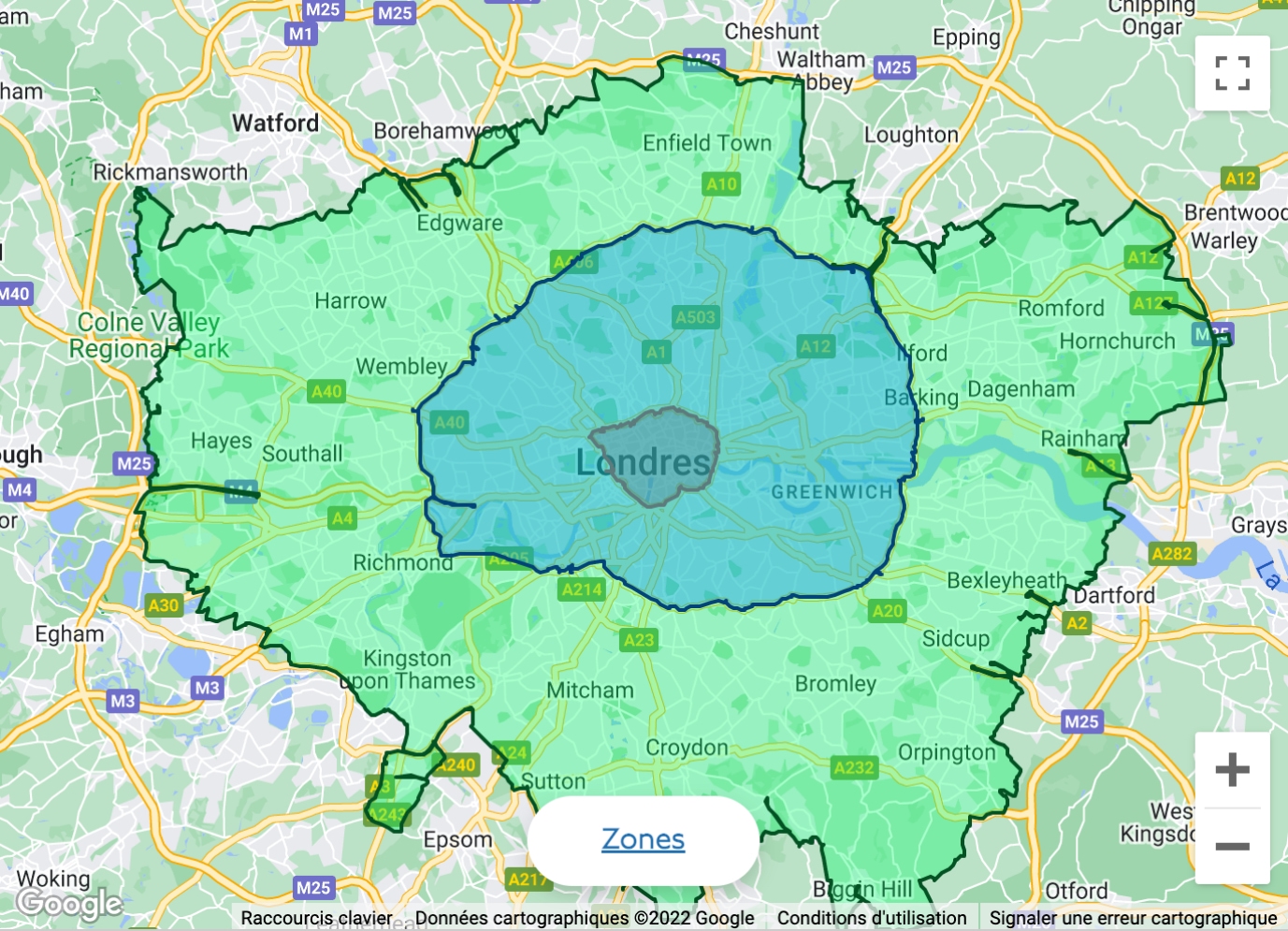
Official map of the current Congestion Charge (in red), ULEZ (in blue), the LEZ and DVS (in green) zones. Source tfl.gov.uk
To be exempt from ULEZ, your vehicles must meet Euro 6 standards if you have a diesel and Euro 4 for petrol cars and vans.
We highly recommend checking your vehicle through the government tool to determine if you meet the emissions standards. These small decisions today can have a big impact, both ecologically and on the operations of your delivery fleets.
Expansion of ULEZ in 2023
The mayor’s efforts to reduce air pollution haven’t stopped there. Sadiq Khan, has announced in August this year his proposal to extend the ULEZ area out of the M25 to cover all 33 London Boroughs.
Khan’s plan is still under the TFL consultation, which has launched a public poll. Early results are indicating that roughly 51% of Londoners supported the expansion, while only 27% opposed the plan.
Small businesses need more time to prepare for the expansion
Even though public opinion is in favour of the expansion, the consequences on businesses and the cost of living are slowing the final decision.
Companies in London have suffered from labour shortages and supply chain delays, made worse by the pandemic and Brexit. Check out our article about the solutions to tackle the shortage of drivers.
The LCCI the (London Chamber of Commerce and Industry) warned the Mayor that firms need more time to prepare. Some small businesses may not be able to face the upfront costs of switching to ULEZ-compliant vehicles in time for August 2023.
Mayor Khan will announce the final date at the end of this year, taking into consideration the positive data around air improvement and the business consequences. Time is ticking away, and small businesses are best advised to react now if possible.
What about help from the government?
To encourage individuals and companies to reduce their carbon emissions, the Mayor of London put in place a scrappage scheme back in 2019. Thanks to this initiative, more than 80% of vehicles are now ULEZ-compliant. The applications for the scrappage were closed last year to new applications.
Even though the Mayor’s Office hasn’t made an official announcement on a new scrappage scheme, it would be crucial for lower-income households and small businesses to tackle the adjustment.
Optimise transport routes with specialised software
If you make deliveries or interventions on your own account, another very effective solution to improve your logistics performance in urban areas is to adopt route optimisation software. A tool like AntsRoute uses several levers to limit the number of vehicles in circulation and the kilometres travelled simultaneously:
- Streamline Journeys. AntsRoute’s powerful algorithms systematically determine the best route, integrating both your constraints and the data provided by famous navigation software such as Waze or Google Maps: traffic bans, construction works, traffic jam history, etc.
- Optimise the loading of delivery or intervention vehicles. Depending on your business, AntsRoute can maximise the filling of vehicles or plan the necessary round trips to collect equipment, spare parts or new packages.
- Prioritise environmentally friendly vehicles. Does your fleet include conventional thermal vehicles and others with low-carbon emissions? You can configure our software to favour the “greenest” vehicle or, failing that, the one that consumes the least fuel.
- Take into account the constraints specific to electric or hydrogen engines by considering the range of each vehicle and the charging time. Our data will of course be regularly updated according to the actual installation of the new terminals announced regionally.
- Reduce absences occurring from first-time visits. To limit delivery failures as much as possible, our transport software takes into account the time slots requested by customers and schedules the sending of reminder emails or SMS.
Sustainable deliveries pilot at London’s Billingsgate market sees 37% reduction in emissions
We’ve recently learned about an exciting sustainable deliveries pilot scheme taking place in London’s Billingsgate market. Over 40 traders at the historic fish market are pooling together using a shared fleet of connected vehicles.
Many market traders rely on vans to make deliveries, however, vans will sit unused for most of the day. This new shared scheme has identified the opportunity to reduce the number of trips by avoiding duplicate journeys and reducing the number of vans available. This has ultimately resulted in a reduction of 37% in CO2 emissions and 900 fewer journeys than monthly.
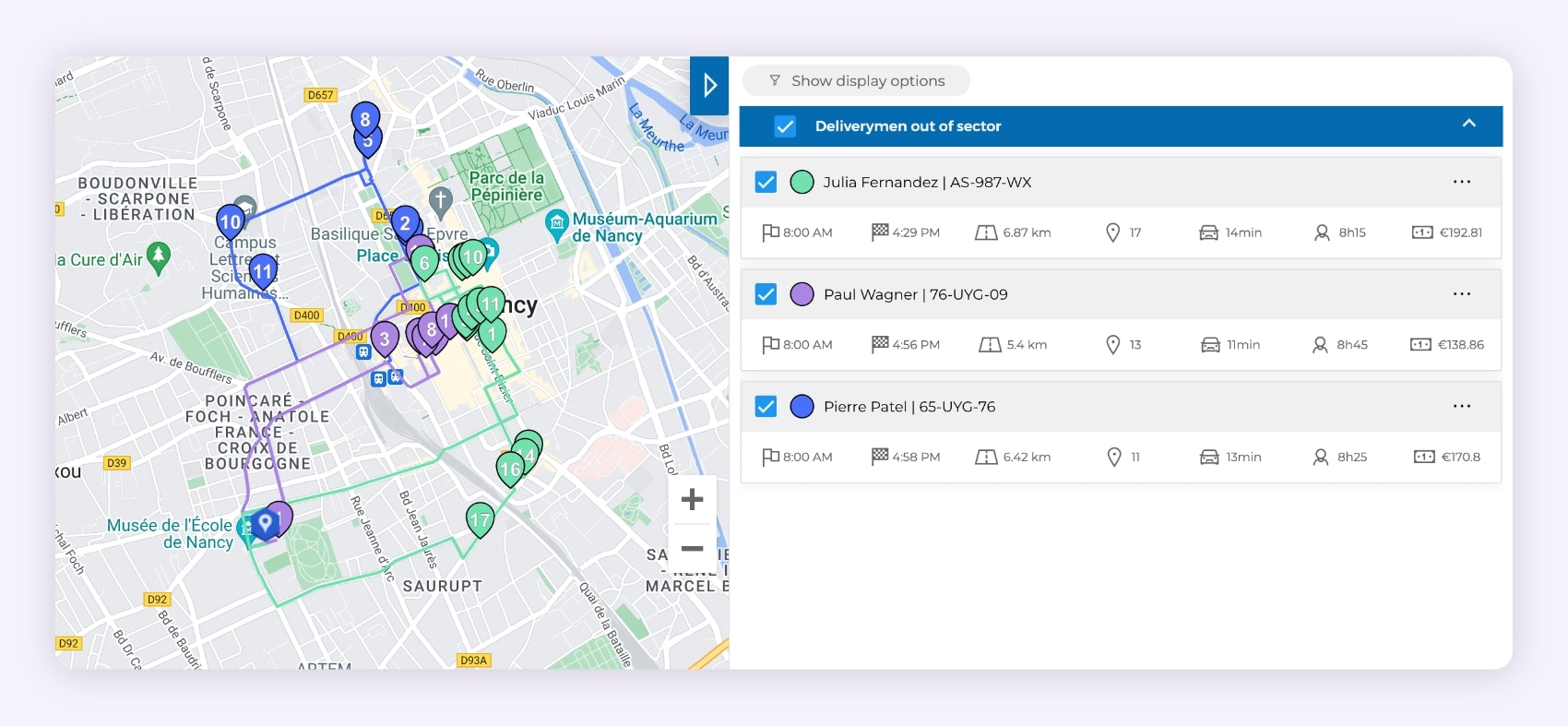
The AntsRoute delivery route optimisation software.
Adopt alternative modes of transport whenever possible
The strategy of elected officials regarding urban logistics finally involves reducing “thermal” road traffic in favour of other quieter or more ecological modes of transport.
Allocating a certain flow of goods to specialists in Green Logistics
At the other end of the chain, some companies have an interest in delegating all or part of their flow of goods to players specialising in ecological delivery in London.
These new intermediaries centralise their customers’ parcels in multimodal hubs located in town or on the outskirts, before travelling the last mile by cargo bike, electric car, natural gas truck, etc. These providers include:
- CitySprint
- Zedify
- Ecofleet
- Greencourier
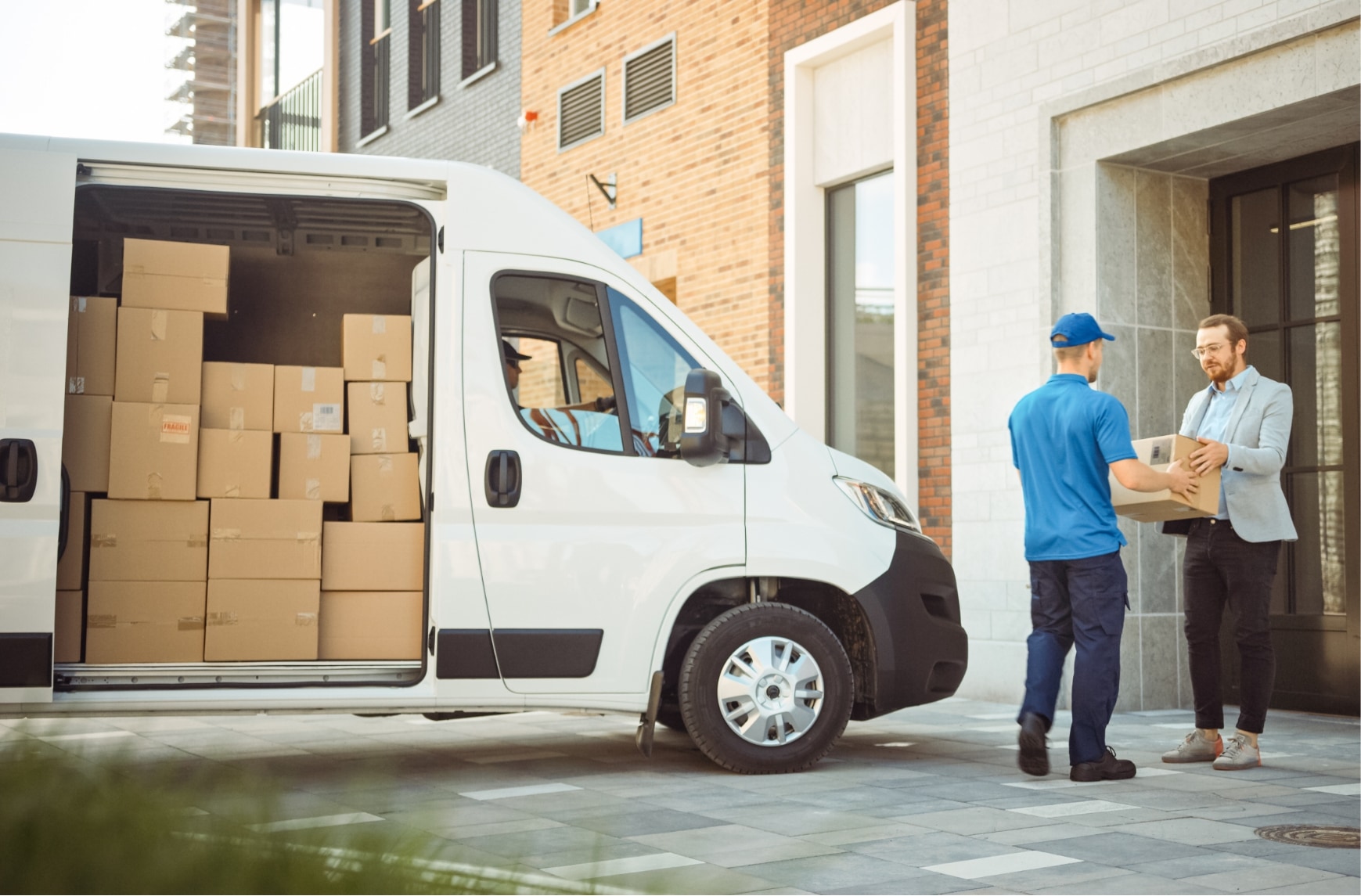
A number of companies specialise in environmentally-friendly delivery in London.
Bicycle Delivery
To encourage companies to favour this mode of transport and make life easier for deliverers, elected officials intend to:
- Develop a much tighter network of cycling paths.
- Increase the amount of aid for the purchase of cargo bikes.
- Install “amenities” for delivery workers: toilets, water fountains, electric charging stations, etc.

Bicycle deliveries in urban areas are becoming increasingly popular.
Silent Deliveries in Staggered Hours
Practised for several years in the Netherlands, silent deliveries early in the morning or at the end of the evening have been the subject of a successful experiment. This practice would allow an 8% reduction in greenhouse gases, but above all a net reduction in urban congestion.
River Transport
In 2020, DHL launched a clean sailing for last-mile logistics in London. DHL’s riverboat operates daily in the morning on the Thames from Wandsworth Riverside Quarter Pier to Bankside Pier in central London. It transports small packages into central London. Electric vehicles move the shipments from the DHL hub, and the last mile is operated via courier bicycles.
According to DHL’s CEO of the UK and Ireland Ian Wilson, this is not only a cleaner transport way, but it is also more efficient. The riverboat service runs at a high speed, providing a faster way of delivering goods.
No more vans stuck in traffic jams thanks to this untapped access route into London.
Do you want to test our route optimisation solution for free to improve your logistic performance? Just register here!
Free 7-day trial | No credit card required
Contenu
- Your general guide to ULEZ:
- Expansion of ULEZ in 2023
- Small businesses need more time to prepare for the expansion
- What about help from the government?
- Optimise transport routes with specialised software
- Adopt alternative modes of transport whenever possible
- Allocating a certain flow of goods to specialists in Green Logistics
- Bicycle Delivery
- Silent Deliveries in Staggered Hours
- River Transport


